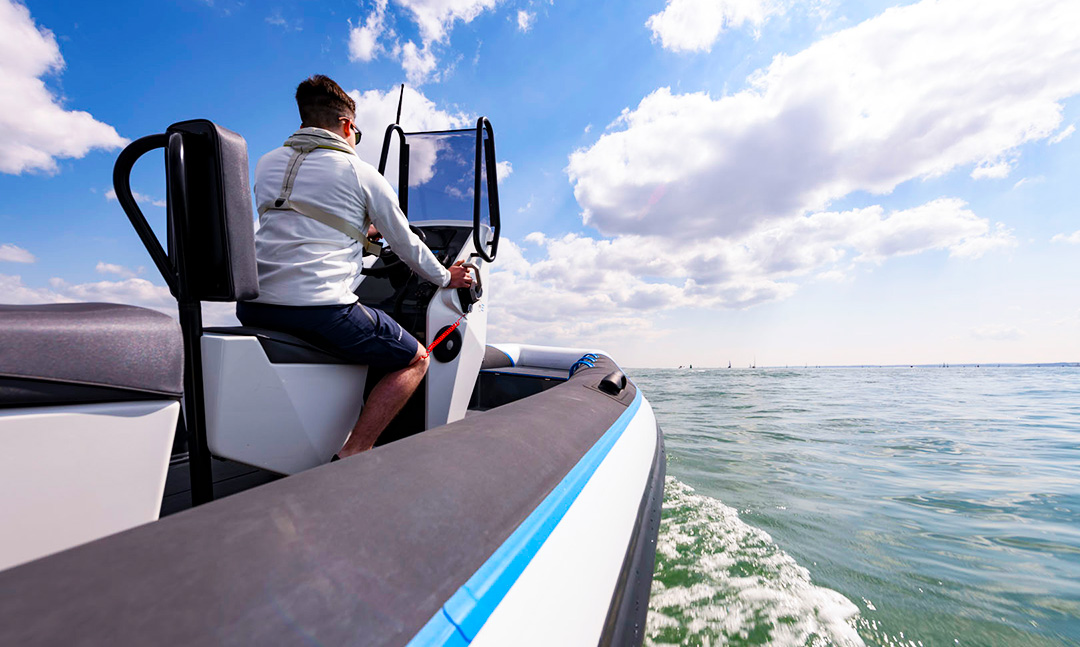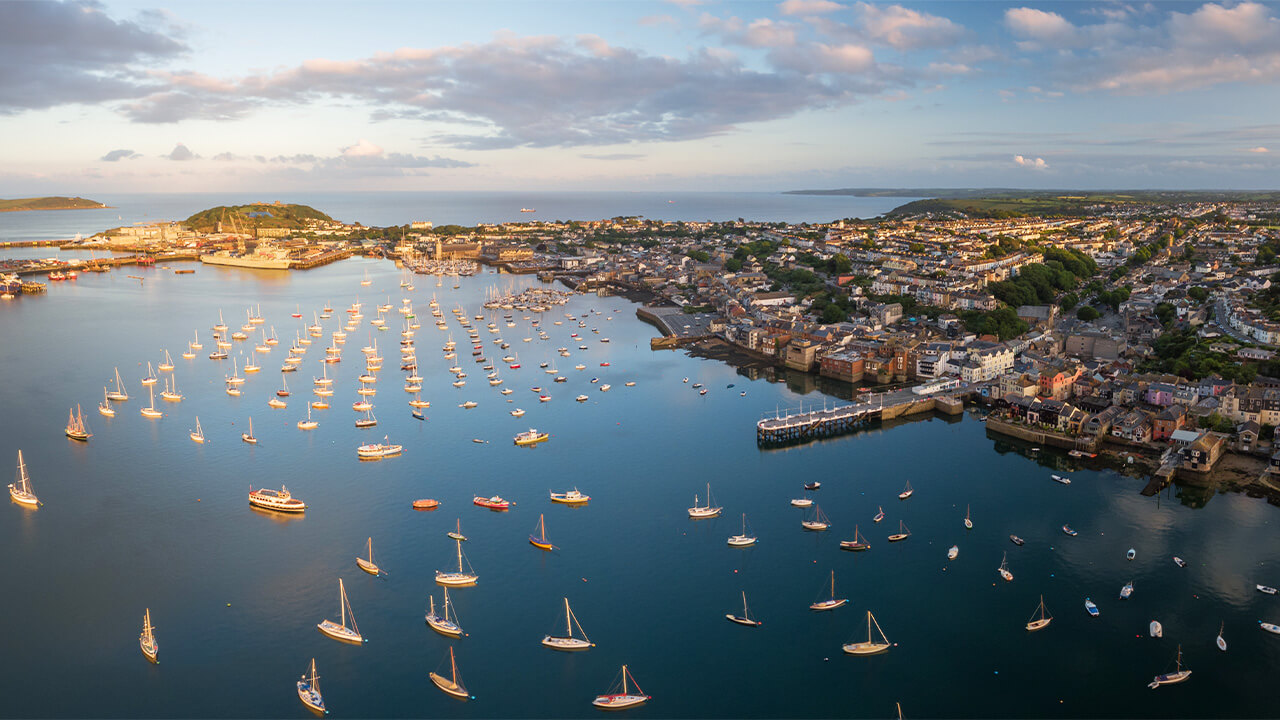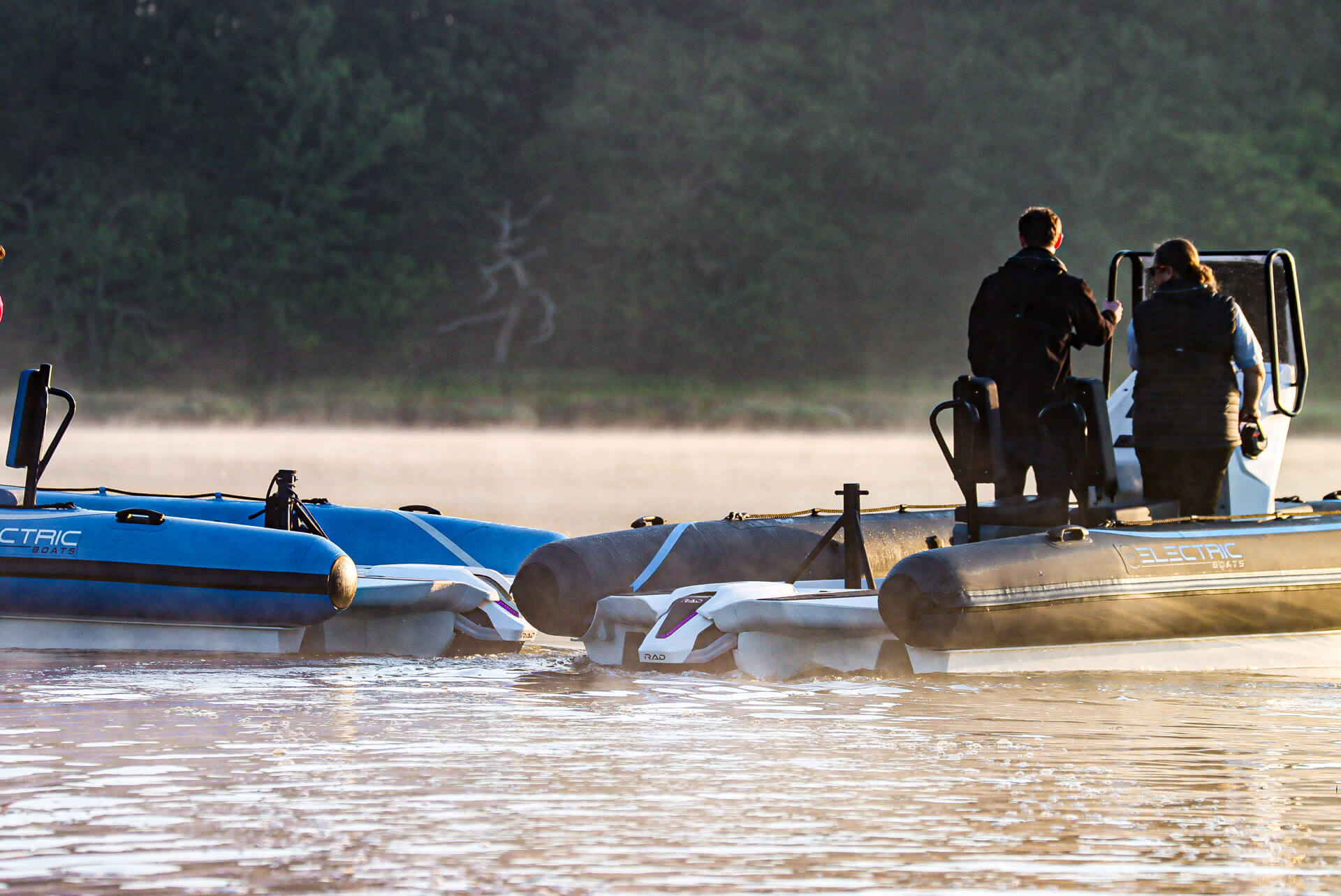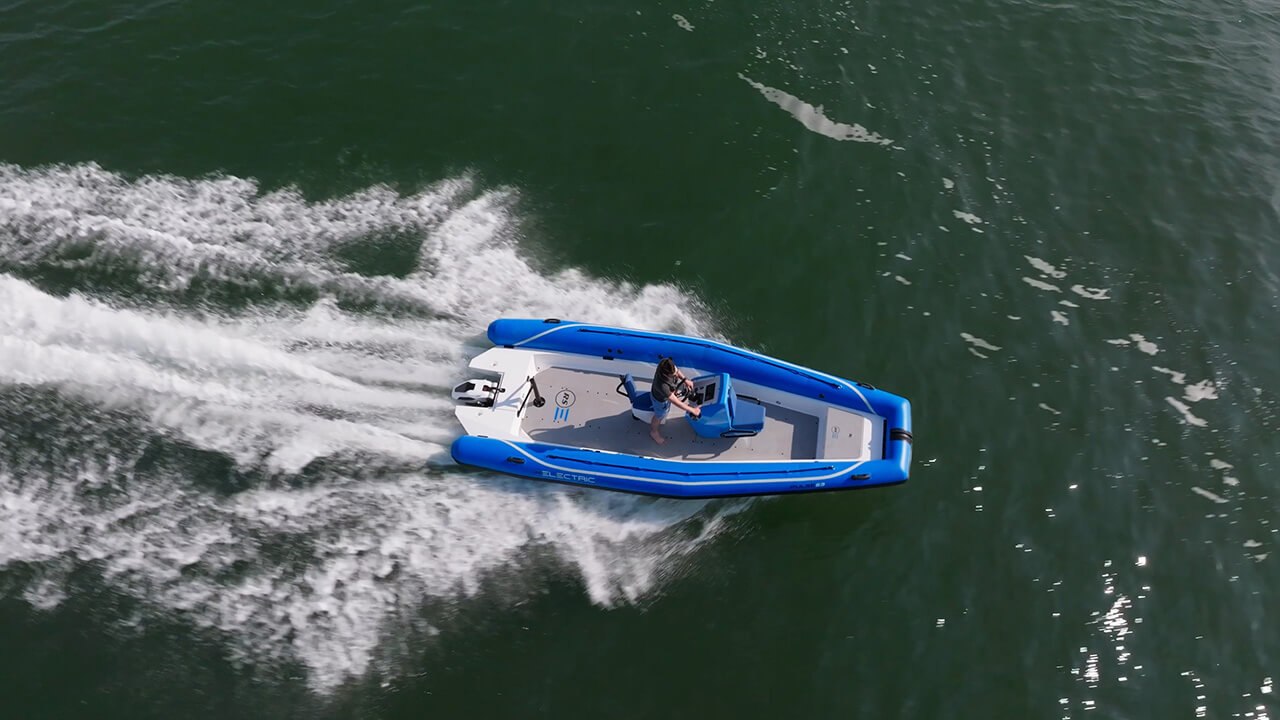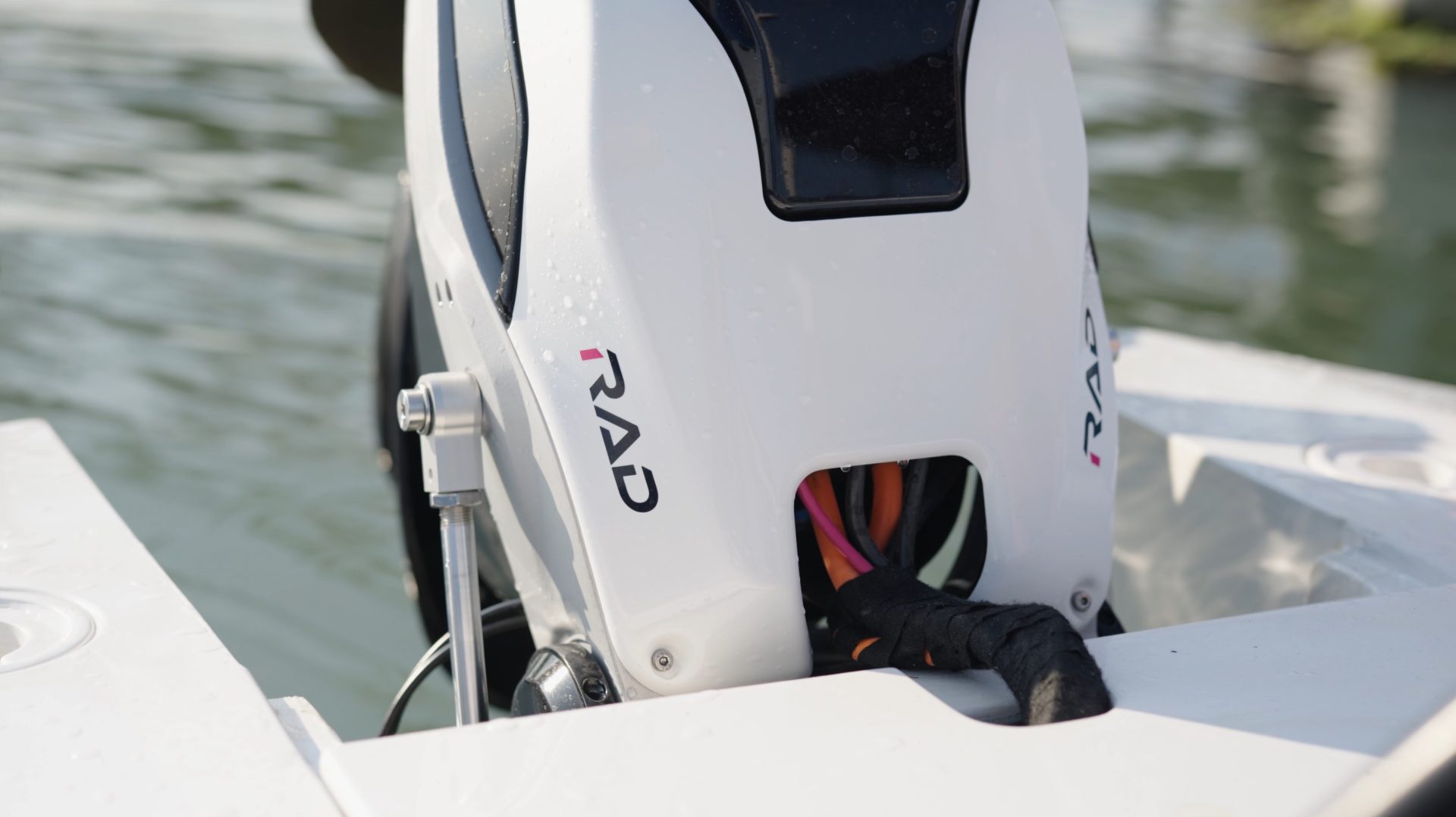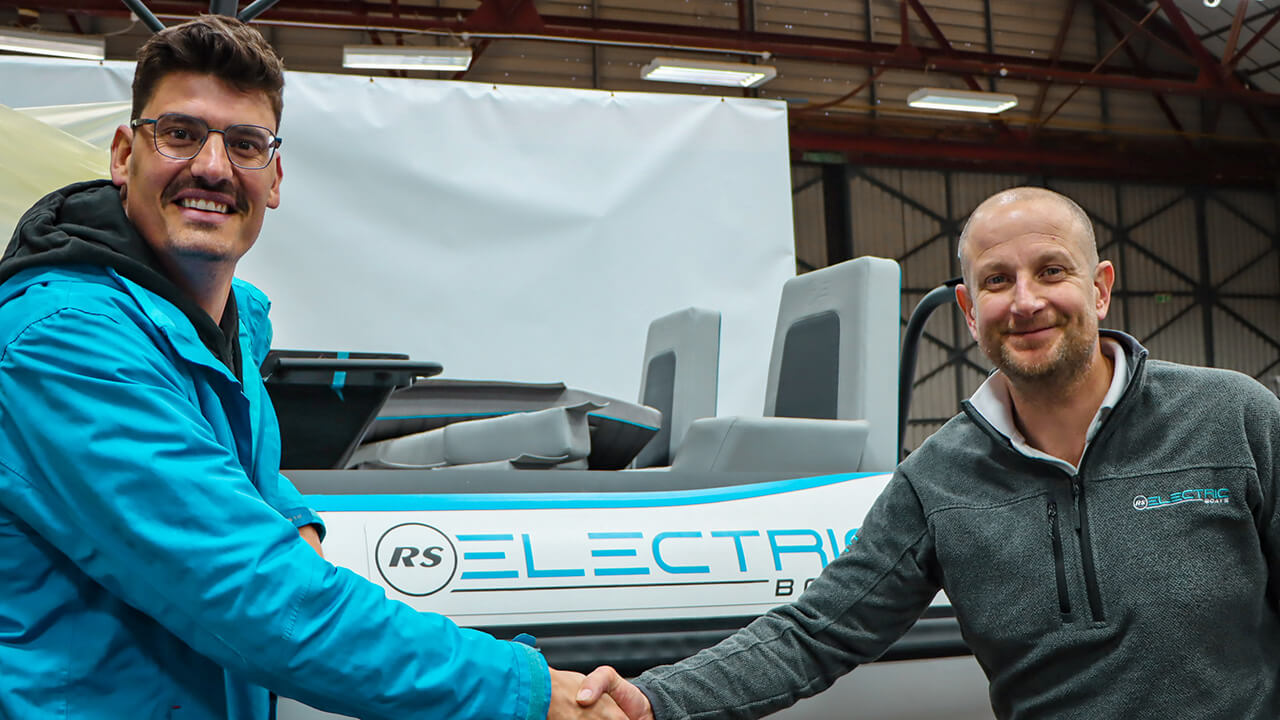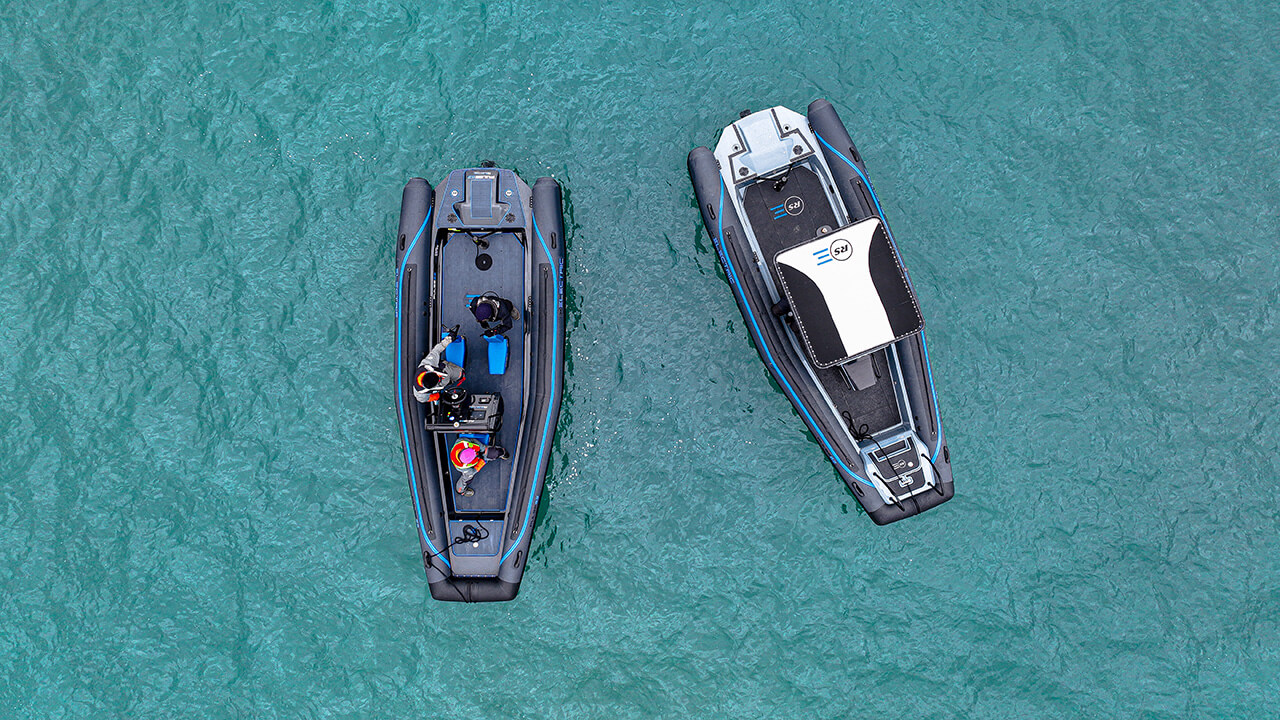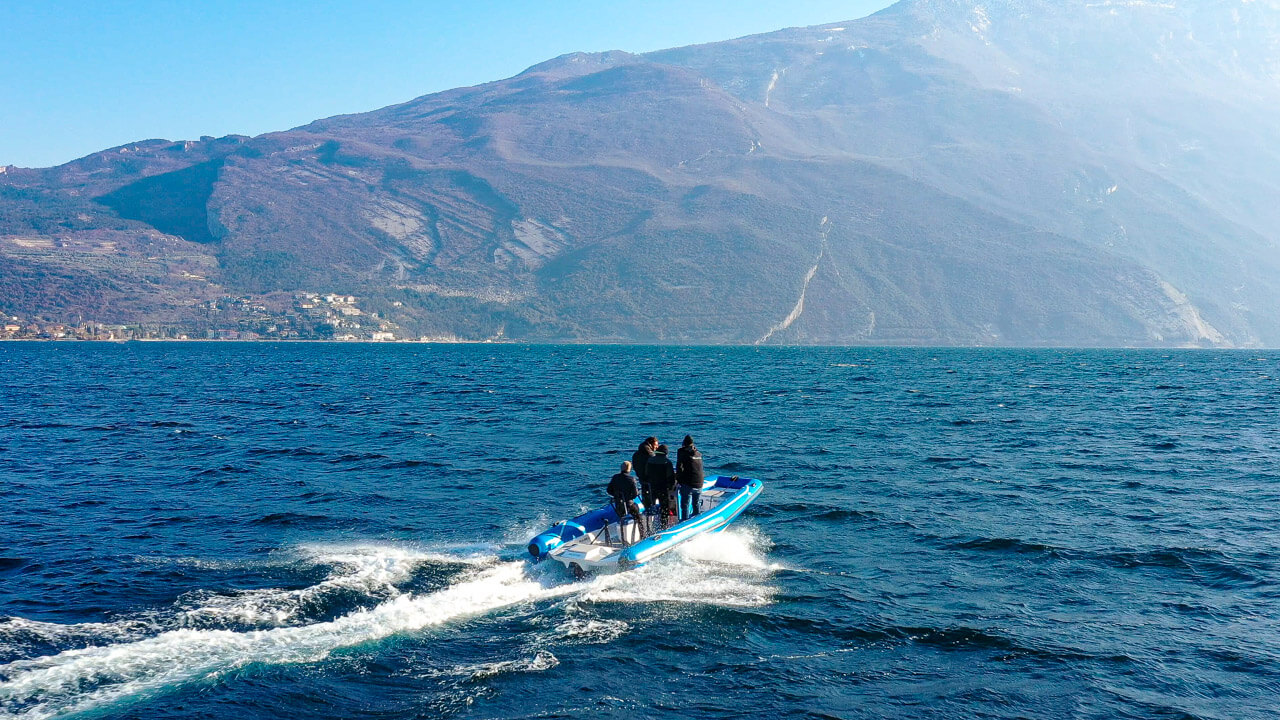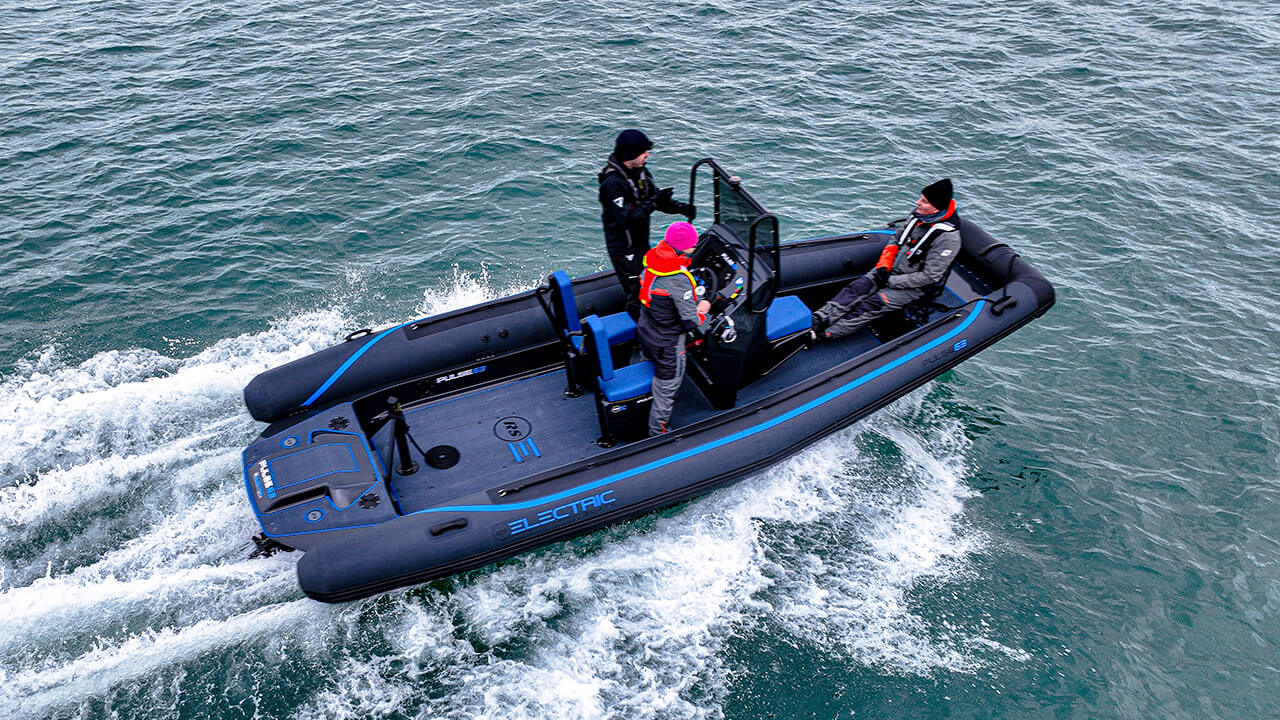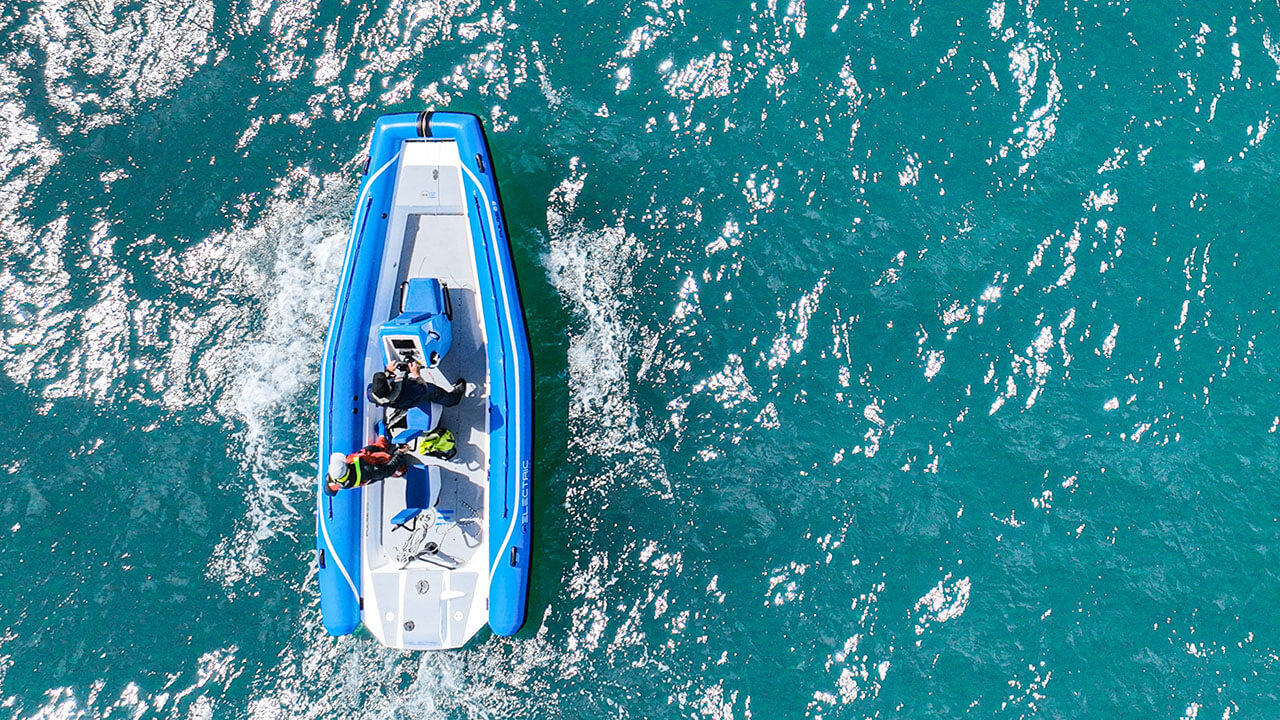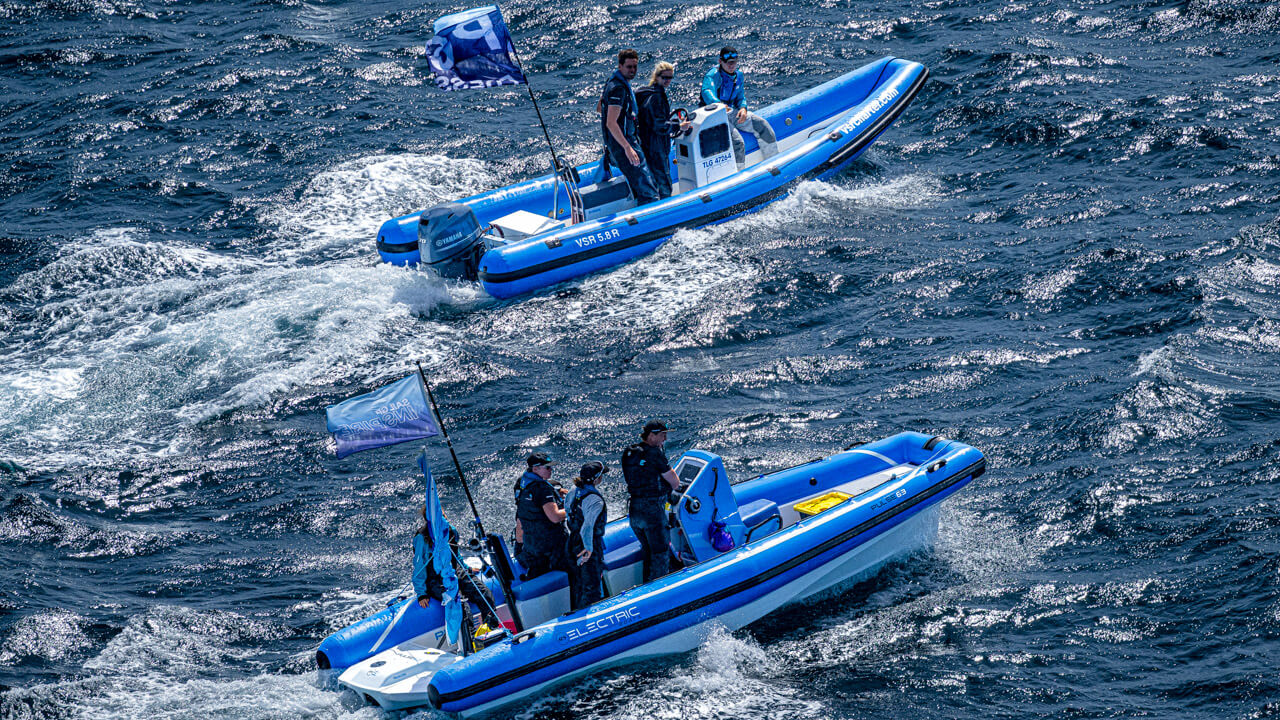One of the biggest driving forces behind the launch of RS Electric Boats and the development of the Pulse 63 electric RIB is our commitment to helping reduce water pollution and prevent harm to wildlife above and below the surface of our seas and oceans. We want as many people as possible to enjoy beautifully clean waterways and a diverse array of wildlife, now and in the future, and believe that the rise of electric marine propulsion has the potential to significantly improve the quality of the water we work and play in.
Here we take a look at just a few of the ways in which electric boats are good for the planet.
Zero Emissions Propulsion
One of the biggest benefits of electric boats is that the propulsion is emissions-free which means harmful substances such as carbon monoxide, hydrocarbons, particulate matter and nitrogen oxides are not released into the atmosphere whilst the engine is running. Combustion engines, on the other hand, release high levels of these pollutants into the air via exhaust fumes which not only reduce the air quality but can also be unpleasant for passengers, wildlife and other water users.
No Water Pollution
According to the RYA’s Green Blue initiative, just one litre of oil can pollute one million litres of water! Furthermore, most of the oil and fuel pollution in our waterways is caused by everyday oil leaks, refuelling and engine emissions. This pollution can wreak havoc for birds and fish, as well as humans, so it’s important to find ways to avoid this contamination. Electric boats do not require any fuel and very little oil, so they are far less likely to cause any harm to wildlife or water users, making them a great way to significantly reduce water pollution.
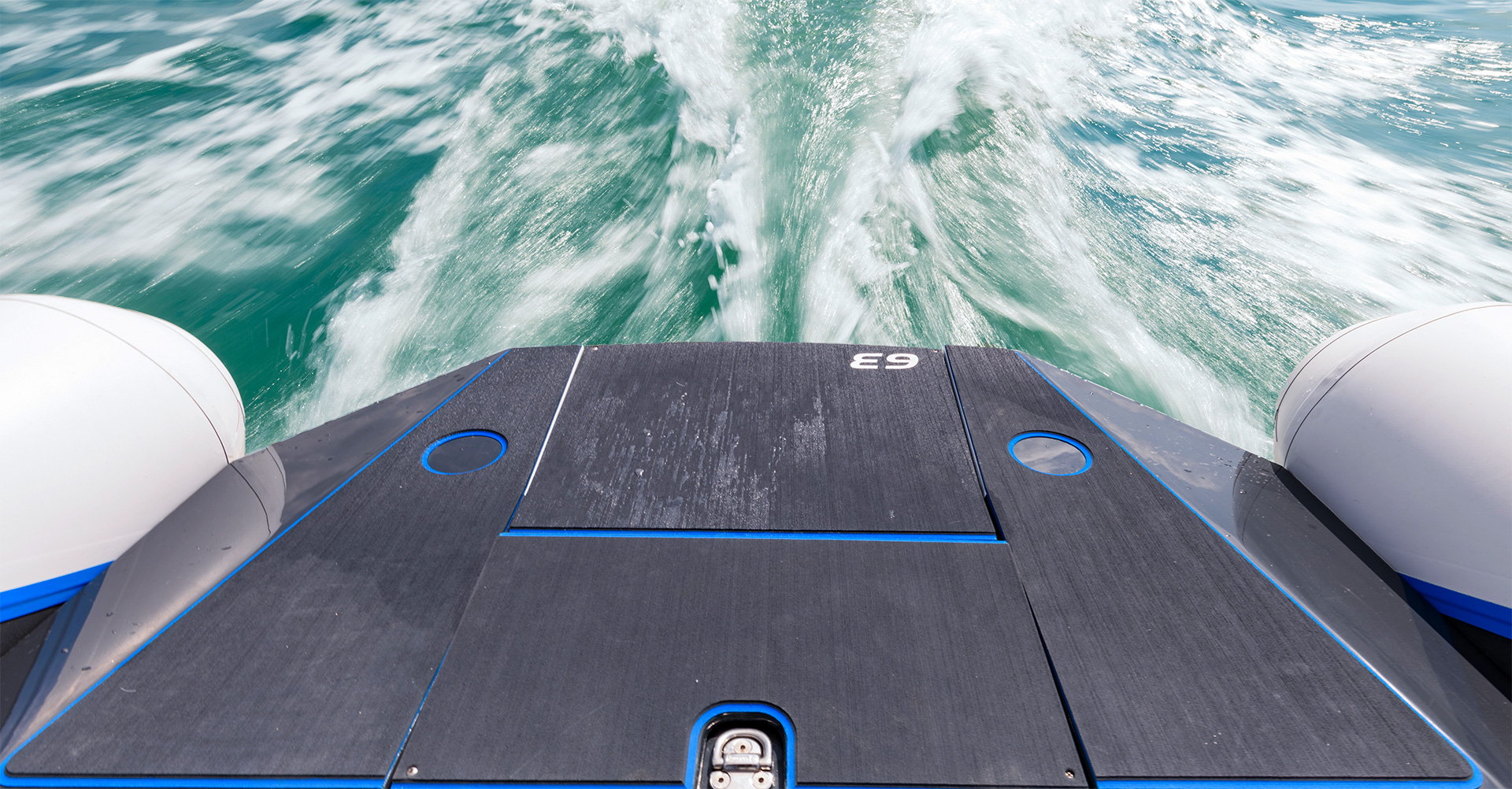
Green Energy
Electric boats can be run off clean, green energy. Charged directly from the grid, electric boat owners can choose to power their vessels from renewable electricity, making them more environmentally friendly than combustion engines. In contrast, diesel and petrol engines rely on vast amounts of energy to get fuel to the dockside. Fossil fuels have to be extracted from deep within the earth, transported great distances, refined, and distributed by road to the pump, so the energy use is staggeringly high!
Energy Efficient
Electric boats such as the Pulse 63 use the latest in boat building technology and hydrodynamic modelling to ensure power distribution and hull form are as efficient as possible. The lightweight hull, combined with the RAD40 Electric Drive, ensures instant power and little drag, resulting in minimal wasted energy. Not only is less electricity required to run an electric boat, but it’ll also be cheaper to run too.
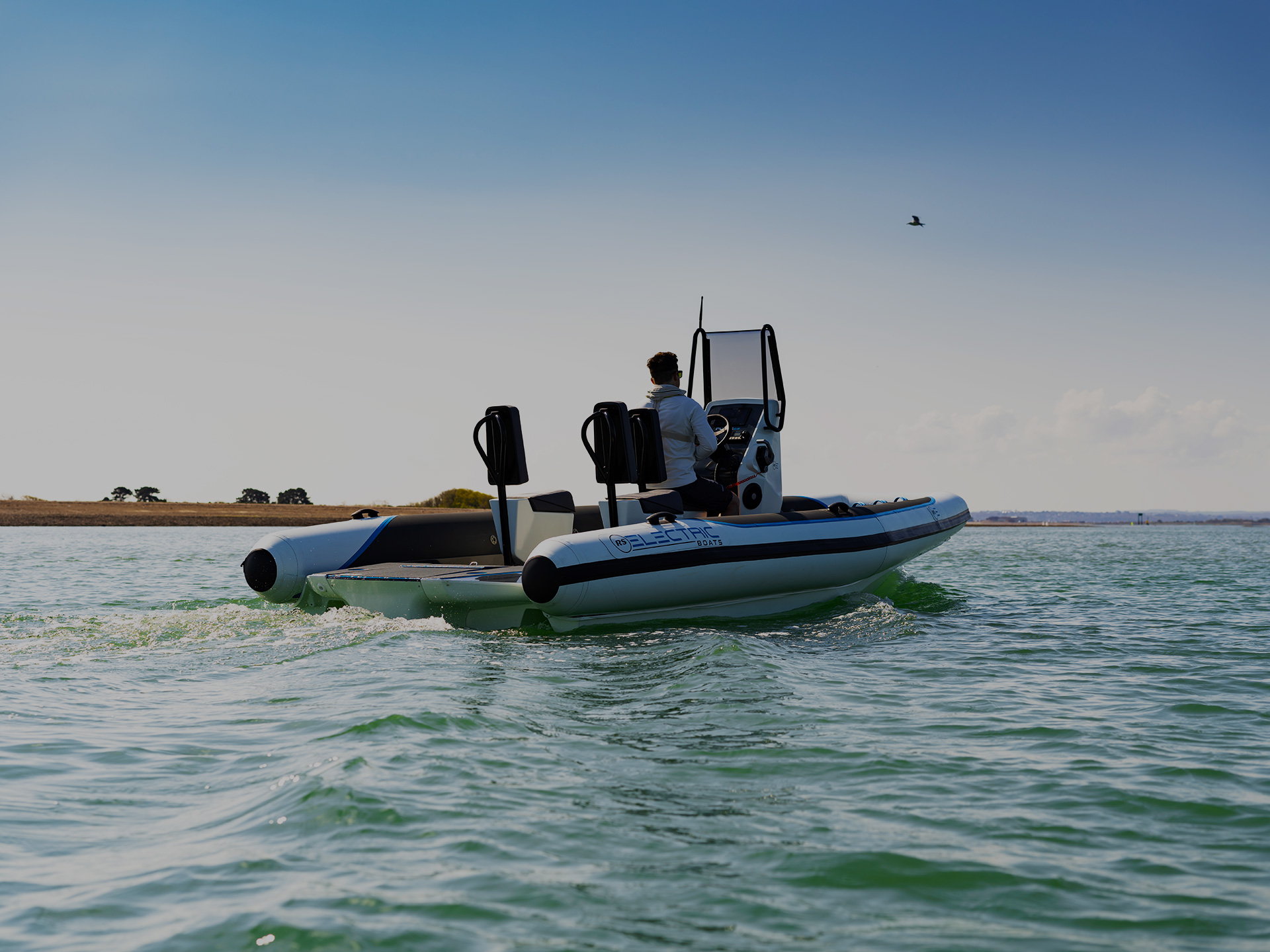
Sustainable Materials
With the hull core made from plastic bottles, and the interior deck, floor, console, engine box and hatches built from recycled carbon fibre, the carbon footprint of the Pulse 63 build is low. Furthermore, the hull is stackable to reduce its freighted carbon footprint. And where carbon production can not be avoided, RS Electric Boats is working hard to minimise its impact on the planet and reduce wastage through the MarineShift360 life cycle analysis programme.
Quiet
Electric boats are much quieter than traditional marine outboard engines, which makes disturbance to wildlife minimal. Many scientific studies suggest that the noise generated by petrol and diesel boat engines can have detrimental effects on marine wildlife. Not only does the noise prevent fish from hearing predators, but it can also hinder navigation for partially sighted mammals and even impact breeding cycles. Engine noise can also disturb wildlife living above the surface.
Find out more
These are just a few reasons why electric boats are better for the environment than traditional combustion-driven motorboats. If you want to make a difference and help us improve the state of our waterways, switching to electric propulsion could make a significant impact. To find out more about the eco and sustainability credentials of RS Electric Boats, take a look at our ECO page and follow us on Instagram or Facebook for useful tips on how to make your boating more environmentally friendly.

